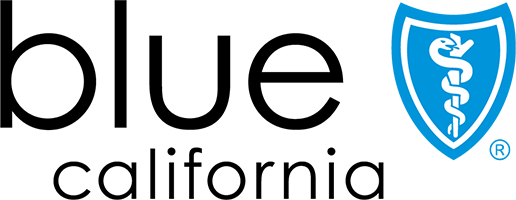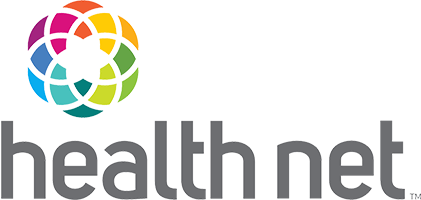Medication Assisted Treatment: How It Works for Drug and Alcohol Withdrawal
Medication-assisted detoxification, also known as medication-assisted treatment or MAT, uses FDA-approved prescriptions to help you through the withdrawal process from drugs and alcohol. MAT is done under the supervision of a licensed doctor or medical professional.
Struggling with substance use disorders involving methamphetamine, alcohol, opioids, or synthetic drugs like MDMA is a reality for many. Medication-assisted treatment has become a vital part of the recovery journey, offering support and stability during the process.
In-Network With:
















What is Medication-Assisted Treatment?
Medication-assisted detox is a proven approach to treating substance use disorders, combining FDA-approved medications with counseling and behavioral therapies. This holistic treatment helps manage cravings and withdrawal symptoms, supporting individuals through recovery. At Cornerstone of Southern California, medication-assisted treatment (MAT) is an important part of our drug and alcohol treatment programs. Since the 1980s, we have been helping individuals overcome substance use disorders and rebuild their lives.
Does Medication-Assisted Treatment Work?
Short answer: Yes.
Our evidence-based medication-assisted treatment programs have supported thousands of individuals in overcoming the uncomfortable, painful, and potentially life-threatening side effects of withdrawal from alcohol and drugs. MAT provides a personalized approach, combining medication with counseling and support to address both the physical and emotional aspects of recovery.
Why Medication-Assisted Treatment?
When you first started using drugs or alcohol, you likely used less than you do today. Over time, your body became accustomed to these substances, needing more to achieve the same effects. This increased use can lead to a dangerous dependence, and suddenly stopping can be a severe shock to your system. As you stop using drugs and alcohol, your body needs time to adjust. Medication-assisted treatment (MAT) helps support this transition.
There are two key reasons we prescribe FDA-approved MAT for addiction:
1. To Save Lives: Withdrawal from drugs and alcohol can be life-threatening. MAT helps reduce the risk of severe withdrawal symptoms and makes detox safer.
2. To Prevent Relapse: MAT helps manage withdrawal symptoms, lowering the risk of returning to substance use during recovery.
What Clients Say About Cornerstone
I wound up in Cornerstone's Alternative Sentencing Program. I had two Case Managers while I was there: Robert M and Crystal O. They did their job quite differently and yet both were powerfully effective.
Fast forward twenty-five years: I continue the sobriety Cornerstone gave me through the strong boundaries and support of their program and staff. I also now work 'in the field' of addiction recovery as an author and communicator.
As a professional, I enthusiastically recommend all of Cornerstone's programs, with special mention of the integrity of their Alternative Sentencing Program headed by Dr. Stephanie Herring; a renowned leader in this life-saving work.
David Zailer — Author of OUR JOURNEY HOME, WHEN LOST MEN COME HOME, and DEATH OF A FISHERMAN. Founder of Operation integrity
She was there for us in our scariest moments and stood by our family through it all! She was truly a guardian angel and has helped thousands of people and their families.
Dr. Herring continues to stay in contact with us and shows us nothing but genuine love and support! We LOVE her and are so grateful for her support through all the court proceedings and her heart and compassion. She has become part of our family!❤️
We’d recommend Cornerstone to anyone that needs substance abuse and mental health treatment who have legal charges.
They really sincerely care about you.
And if you're serious about getting your life changed, I recommend Cornerstone.
Tim O'Flaherty
The Food was awesome. I was able to quit my job that was driving me nuts and finally follow my dream of coaching full time in the sport I love. I have no doubt Cornerstone saved my life, I have no doubt I'd be dead if it wasn't for them. Thanks to Titus, Maria, Diane, my counselor Raul, Jennifer at intake, all the drivers whose name I forgot. God bless you all, 1228 days straight and I'm not looking back. I can't recommended this place anymore, if your sick of it all and ready to move on, Go to Cornerstone.
My suggestion for anybody that is planning on coming here is to do this for yourself and not no one else because when you fix whatever you have going on mentally or emotionally and get the tools that will help you succeed in turbulent times you will be successful not only one day at a time But you will also have a beautiful journey up ahead.
-Difficult roads lead to beautiful beginnings-
I came in very uncomfortable, as expected. But I had all of my questions answered, given the tour, shown the schedule, and introduced to people and other elements, in line with my comfort level.
Aside from the staff, they allow you to live with and establish co-dependency with other patients. Some with very similar problems, and some with a different set. Group sessions, activities, and living together all come down to one commonality though - finding the path and the strength to recovery.
A very special shout to Case Manager, Maria Carter too - I have never known anyone who exudes hope and positive energy like her. She listens to you, and hears you. Truly dedicated to making us successful.
The program’s evidence-based therapies with personalized attention, provided me with the tools and insights necessary to confront my addiction and reclaim control of my life. The therapeutic environment fostered a sense of community and understanding, allowing me to connect with others who were on similar paths.
Moreover, the facility’s amenities were top-notch, offering a comfortable and safe environment conducive to healing and self-reflection. The serene surroundings and well-appointed accommodations added to the overall positive experience.
Thanks to the comprehensive support and resources available at Cornerstone of Southern California, I have emerged stronger, healthier, and more hopeful than ever before. I wholeheartedly recommend this center to anyone seeking effective and compassionate treatment for addiction. It truly changed my life for the better.”
Shan Mir
Withdrawal Symptoms from Drugs and Alcohol
Symptoms vary from person to person and depend on a number of factors including what substance they’ve used; if they’ve combined the substances with anything else, and how much they’ve used. Symptoms also are affected by age, genetics, and other risk factors including your overall health.
Flu-like symptoms: overall body ache, fatigue, runny nose/watery eyes, sweats, nausea, and vomiting.
Emotional symptoms: anxiety, agitation, nervousness, depression, anger, restlessness, difficulty concentrating, panic attacks.
Other physical symptoms: heart palpitations, sleep disorders, gastric upset, headaches, irregular heartbeat.
Severe symptoms: hallucinations, seizures, cardiac arrest, delirium tremens, and fevers.
How Does Medication-Assisted Treatment Work
You will meet with your healthcare team, who will conduct an evaluation, including a complete history and physical exam. Based on your health, age, and other factors, they will prescribe FDA-approved medications to help manage withdrawal symptoms.
Your doctor will prescribe one or a combination of medications, which may be administered in the following ways:
- Orally (pill, tablet, or capsule)
- Subdurally (patch)
- Sublingually (lozenge under the tongue)
- Intramuscularly (injection)
Medications like buprenorphine, methadone, and naltrexone (Vivitrol) are commonly prescribed to ease withdrawal and cravings.
Along with MAT, your recovery team will recommend other therapies, such as individual or group counseling, nutrition and diet support, exercise, and more. These treatments complement MAT, addressing the emotional and behavioral aspects of recovery.
MAT is designed to ease withdrawal, allowing you and your team to work on identifying triggers, addressing the root causes of substance use, and developing strategies to cope with cravings and prevent relapse.
As you transition from inpatient to outpatient care, your team will continue to monitor your progress and adjust MAT doses to ensure the most effective treatment as you continue your recovery.
Medications for Drug and Alcohol Withdrawal Treatment
This section explores medications used in the treatment of withdrawal symptoms for alcohol, opioids, and benzodiazepines, including anti-seizure medications, methadone, buprenorphine, and naltrexone.
Anti-Seizure Medication for Alcohol Withdrawal
Alcohol withdrawal symptoms can range from mild to severe, with extreme cases leading to seizures and delirium tremens. In some cases, anti-seizure medications may be prescribed. Common medications for alcohol withdrawal may include:
- 5HT3 receptor antagonist drugs to help prevent nausea and vomiting (used in MAT and other conditions).
- Acamprosate to help balance brain chemistry, but not for withdrawal symptoms.
- Antabuse to prevent cravings and produce a negative effect when alcohol is consumed.
- Naltrexone (brand name Vivitrol) to prevent cravings and reduce side effects that occur during withdrawal.
- Anti-seizure medications or Anticonvulsants in rare cases of seizures caused by alcohol withdrawal.
Methadone and Suboxone (Buprenorphine) for Opioid Withdrawal and MAT
Methadone is a well-known medication for opioid withdrawal and is used to treat opioid use disorders. It must be administered under medical supervision, and it blocks the euphoric effects of opioids and reduces cravings. Methadone is typically given in inpatient settings or through outpatient clinics. Methdadone treatment programs typically last around 12 months, but can be adjusted based on individual needs. Most insurance plans cover methadone, and coverage will be verified.
Buprenorphine (sold under the brand Suboxone) is used for medication-assisted treatment (MAT) to reduce opioid cravings and withdrawal symptoms.
Naltrexone and Naloxone for Opioid Treatment and Overdose Prevention
Naltrexone (Vivitrol) is a monthly injectable medication used to prevent cravings and reduce withdrawal symptoms after someone has stopped using opioids or alcohol for two weeks. It also helps prevent overdose.
Naloxone is an emergency medication used to treat opioid overdoses, including those caused by heroin, fentanyl, and prescription opioids. It works quickly to reverse the effects of an opioid overdose and can save lives. It should only be administered by a licensed healthcare professional.
Medications for Benzodiazepine Withdrawal Treatment
If you are dependent on "benzos" or benzodiazepine drugs like Valium, Xanax, Ativan, or others, your doctor may prescribe medications specifically to manage withdrawal symptoms. Benzodiazepines are commonly used to treat conditions such as anxiety, depression, sleep disorders, and seizure disorders. They are also used for muscle relaxation and anesthesia.
For individuals struggling with benzodiazepine addiction, doctors may prescribe medications like clonazepam or clonidine to help manage severe withdrawal symptoms, including seizures or extreme anxiety.
Medical Assisted Treatment in Los Angeles and Orange County
More Information About Drug and Alcohol Detox Programs

